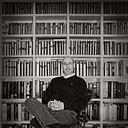The Founding Father that Vandalized Shakespeare’s Chair
Few know that one of the Founding Fathers was a museum vandal. Say what!? Historical sacrilege! First let’s identify the Founding Father. Here’s a hint — he wrote the introduction to one of the most important documents in American history: “When, in the course of human events, it becomes necessary for one people to dissolve the political bonds which have connected them with another, and to assume among the powers of the earth, the separate and equal station to which the laws of nature and of nature’s God entitle them, a decent respect to the opinions of mankind requires that they should declare the causes which impel them to the separation.” That, of course, is the opening sentence to the Declaration of Independence. Its author? Thomas Jefferson.
Thomas Jefferson, who served as the third President of the United States, was a polymath driven by an insatiable curiosity and had a tremendous capacity for wonder. He was a voracious reader and over the years, Jefferson built a private library of about 6,500 books in the six languages that he read: English, French, Italian, Spanish, Latin, and Greek. When the British burned down the Capitol in 1814, he sold his entire collection to the library of Congress for $23,950 (imagine the great deal that the library received: priceless books for only $3.70 each!). As a student of classical literature, grammar, and rhetoric, Jefferson was a passionate admirer of the work of William Shakespeare, also a student of classical education, and of course, acknowledged as the greatest writer in the English language. “Shakespeare,” he wrote to a friend, “must be singled out by one who wishes to learn the full powers of the English language.” When asked by a friend, what books he should read, Jefferson advocated that “a lively and lasting sense of filial duty is more effectually impressed on the mind of a son or daughter by reading King Lear, than by all the dry volumes of ethics, and divinity that were ever written.” Jefferson not only read and studied Shakespeare, he often attended the Bard’s plays that were performed in the playhouses of Williamsburg, Virginia. He also had the opportunity to see several plays performed in the theaters of London.
A biographer reports that in 1786, John Adams and Jefferson made a trip to England to visit Shakespeare’s childhood home at Stratford-upon-Avon. Unlike the heavily guarded and monitored tours of today, museum docents and staff took a rather cavalier attitude toward protecting Shakespeare’s valuable possessions. During the late 1700s, museum visitors would surreptitiously cut a souvenir piece of wood from one of Shakespeare’s chairs. Jefferson, being such an aficionado of the Bard, could not resist. With Adams as his lookout, he cut off a small piece of wood and hid it to take it back to his home in Monticello, where it would be cherished. Who knew Jefferson could be such a rascal? Curators of Jefferon’s estate found the piece of wood and placed it on exhibit in 2006 with a note from Jefferson: “A chip cut from an armed chair in the chimney corner in Shakespeare’s house at Stratford on Avon said to be the identical chair in which he usually sat. If true, like the relics of the saints, it must miraculously reproduce itself.”
We can now add one additional item to Jefferson’s long list of accomplishments: lawyer, statesman, diplomat, architect, inventor, Founding Father, third President of the United States — and vandal.
____________________
If you enjoyed this please visit Atkins Bookshelf, the blog that explores the world of ideas — through books, movies, music, quotations, and the English language — for the intellectually curious. The goal of Bookshelf is to educate, entertain, and inspire. At the heart of Bookshelf is a lifelong love of books and literature. Join here: https://atkinsbookshelf.wordpress.com
